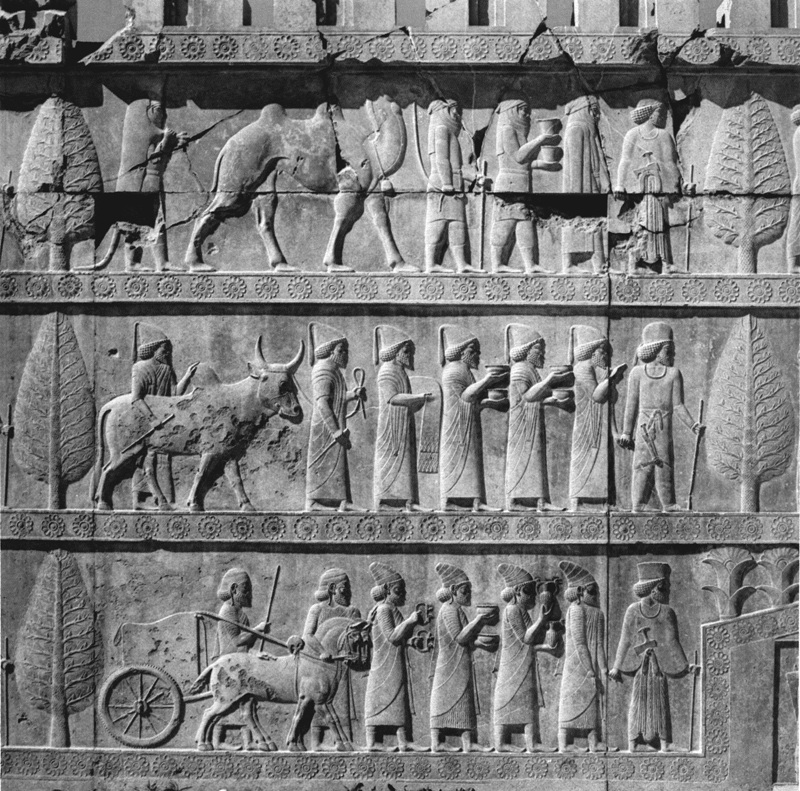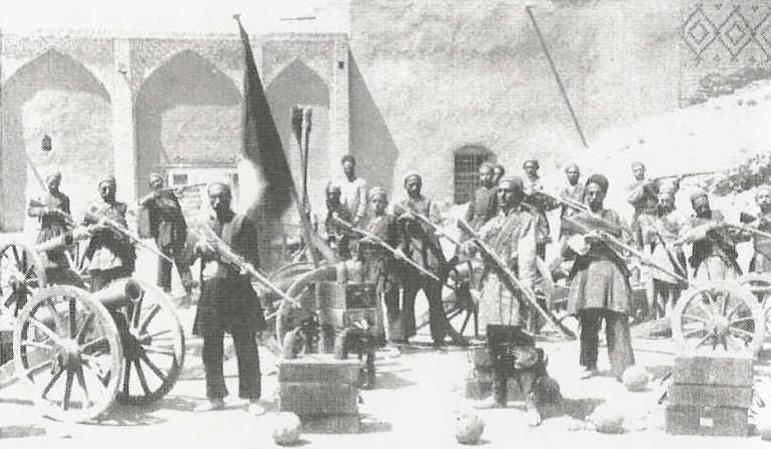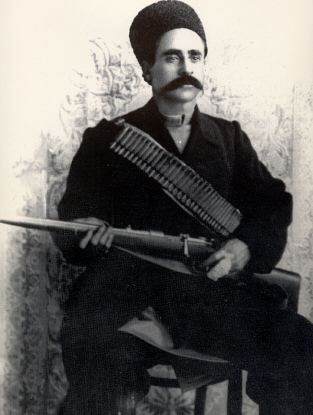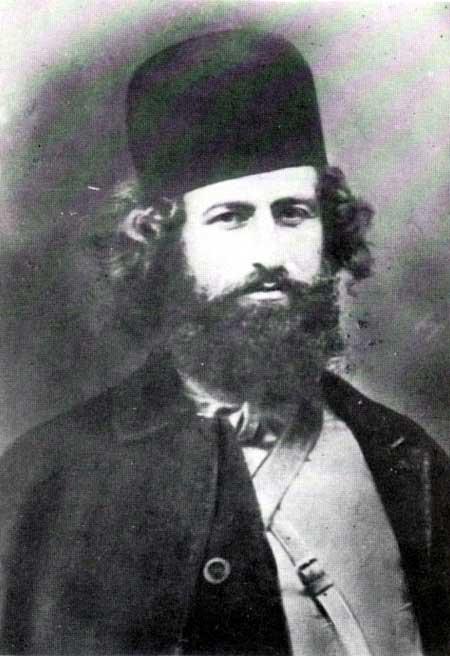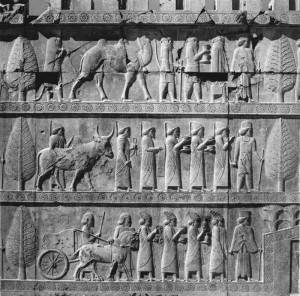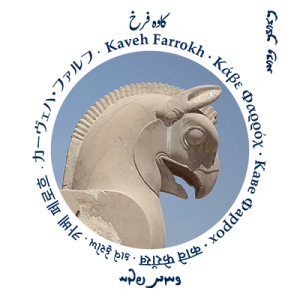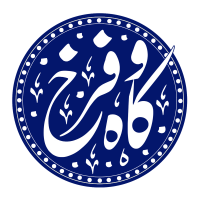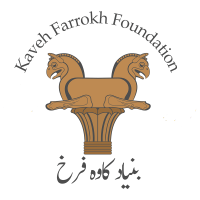The aricle below by Danyal Lotfi was posted originally in IIAB and Payvand News websites. it is a unique and courageous article as it is critical of the denigrating impact of “ethnic jokes” and the damage these impart to the collective identity of Iranians. In a wider sense, the article highlights the harmful nature of such “jokes” within the wider community of nations today, now increasingly interconnected by modern communications, social and regular media.
Kindly note that the pictures shown below did not appear in the original article. Readers are also encouraged to read the responses made by Feyli and Firoozeh to Danyal Lotfi’s essay (posted at the end of the article).
======================================================================
I’m sure most of you have heard of the typical Iranian jokes that are exchanged at family gatherings, between friends and neighbors. Have you ever paid attention to the content of these jokes? Who are they referring to? To us, Iranians. But they are always targeting a certain ethnic minority. These jokes usually entail stories of how Turks/Azeris are dumb, Gilaks have no honor, Lurs are stupid, and so on.
Sattar Khan’s fighters in Tabriz, Azarbaijan with the flag of Iran during the Constitutional Revolution. These played a major role in not only protecting the cause of democracy in Iran.
What most people don’t realize when they share such jokes is how brutally they are hurting the identity of their brothers and sisters from all across Iran. No, Turks/Azeris are not dumb. Have you ever heard of a man named Sattar Khan? He was Azeri and one of the key players in the Iranian Constitutional Revolution in early twentieth century, who with the help of Bagher Khan became the leader of the Constitutional rebels in Tabriz and later on in most of Iran.
You think Gilaks have no “honor”? Well, let me introduce you to Mirza Kuchik Khan, who was another leader during the Constitutional Revolution and who fought for quite a few years against the outside forces (Russian and British) who were controlling the capital at the time. Let’s not forget about Karim Khan Zand, a Lur, who in the 18th century, saved Iran from the chaos of the civil war. The list doesn’t end there. It goes on and on, giving us reasons to be respectful towards minorities within Iran and celebrate these minorities and what each of us bring to the table.
Sattar Khan remains one of the most honored figures of Iran due to his role in the Constitutional revolution of the early 20th century.
Today, there is much talk about racism against Iranians across the globe. However, when I sit at an Iranian gathering, whether it’s with family or friends, and I hear such offensive jokes, whether it’s targeting my own ethnicity or my friend’s ethnicity as a Turk, a Gilak, a Lur, or any other minority, I’m suddenly less worried about racism against Iranians from the outside world and much more concerned about racism within our own Iranian community.
Mirza Kuchik Khan fought bittelry against the Imperial Russians as well as the British.
Most people never really think about the impact of these jokes when they share them. To them, it’s “just a joke, and no one should take it personally.” But think about what we’re asking others when we say such a thing and make ethnic jokes. We are directly humiliating them and part of their identity. How do we expect others not to be offended when we deliberately hurt them and part of who they are?
In order to fight against racism against Iranians across the world, we must first look to ourselves and our community and see what kind of a message we’re sending to outsiders. When we can’t even respect human beings with diverse ethnic backgrounds within our own community, how do we, as Iranians, expect other nationalities to respect us?
When I was growing up, I was always the source of jokes in my family. It almost became a tradition in our family, where every time we had a family gathering everyone would be asking me for the “newest jokes in the market.” And I was always ready to give them the funniest and newest ethnic jokes I had heard. It wasn’t until about a year ago that I began to realize the true impact of these jokes. The ethnic stereotypes mentioned above had been repeated in my head so many times that my brain was starting to believe them. When I had that awakening about the impact of these jokes, I began thinking about why such jokes are so popular in our culture. Dr. Kaveh Farrokh, a history professor at the University of British Columbia’s Continuing Studies Division, says the following regarding the origin of ethnic jokes in the early twentieth century in Iran (Part IIb-8):
“The Russians (and British) were very concerned with a cultural dynamic in Iran that could lead to the rise of a modern and progressive state. The Russians and English were especially concerned with the leadership role that northern Iranians (e.g. Azeris, Rashtis, etc.) had played in Iran’s democratic movement of the early 1900s. It would appear that the united nature of the constitutional movement in which Azeri, Bakhtiari, Mazandarani, Mashahdi, etc. fought side by side in the name of a democratic, progressive and modern Iran was not palatable to the distinguished policy makers in Moscow and London. A means had to be found to divide the Iranians and dissolve their historical bonds.
It was in here where the Russian secret police had the distinction of inventing the first anti-Iranian cultural weapons. They even outdid the British, who themselves had been working to undermine Iran’s unity since the 19th century“.
The cultural weapons are the so-called venomous “jokes” targeted against Iran’s Azeri population and the north in general (esp. Rasht). This is not surprising as it was always these regions that would put up the first fight against any Russian invasion. The Bakhtiaris and Lurs were also targeted, partly due to fears of their martial abilities.”
We must understand the origin of these jokes in order to fully realize their true purpose and impact. We have such a diverse community in Iran and that’s what makes our culture beautiful. Every ethnicity within Iran is an essential organ in the body of the Iranian culture and we shouldn’t have any reason to damage it.
In an article that was recently published by Beeta Baghoolizadeh, “The Afro-Iranian Community: Beyond Haji Firuz Blackface, the Slave Trade, & Bandari Music,” she brings up a similar topic. Her article is about the Afro-Iranian community of southern Iran, one of the many ethnic minorities within Iran. Baghoolizadeh discusses the status of Afro-Iranians in Iran, and the fact that to many Iranians “they simply do not exist.” Baghoolizadeh states:
“When talking about the diversity of Iran, most people will recall the various ethno-linguistic groups that are equally native to the Iranian plateau, like Persians, Azeris, Gilakis, Baluchis, and others who have migrated to the region through the centuries. In these discussions, however, Afro-Iranians and those of African descent are often ignored. Perhaps this stems from their limited exposure in mainstream Iranian culture. Or maybe it is because the legacy of African slavery in Iran contradicts the ever-so-pervasive Aryan myth of perfection and civilization. Regardless, most Iranians forget the Afro-Iranians and their rich traditions, despite their prominent cultural influence that persists today.”
The issue of harming ethnic minorities within Iran does not only come from ethnic jokes. This issue must be looked at from a much broader point of view. We must find all the ways through which we are damaging ethnic minorities in Iran, such as ethnic jokes, ignorance, etc. and work together to eliminate these disrespectful practices.
Reliefs at Persepolis showing delegates of different regions of Persia coming to Persepolis during Norouz celebrations.
We, as Iranians, have always been proud of our past and brag on a regular basis about the great Persian Empire that we believe promoted freedom of speech and religion, whether it actually was the case or not. By looking at the stone carvings at Persepolis in Iran, we can see how delegates of various races from different parts of the Persian Empire would gather together in peace during Norouz celebrations at Persepolis. While it is great for us to be proud of our past and what we believe our ancestors have accomplished, it unfortunately sometimes prevents us from seeing the problems that we face today. Are we as inclusive today as we can and should be? Are we able to gather in harmony with friends and family members from other ethnic backgrounds without making part of their identity the subject of ridicule? We must learn to move on from, but not forget, our past and focus on a brighter future. Ask yourself, aren’t you as a human being offended when someone’s topic of laughter is your ethnicity, sexuality, culture, or other parts of your identity? Are you doing anything to stop discrimination within our Iranian community? Please, take a moment and think about the extremely negative impact of these jokes. For as long as we continue making these ethnically offensive jokes, we are making it harder for ourselves to come together in unity with our brothers and sisters from various parts of Iran. Instead of sharing these disrespectful jokes against ethnic minorities in Iran, let’s encourage ourselves and others to celebrate this diversity within Iran’s borders and learn about how we can enrich our culture and society by doing so.
References
Farrokh, Kaveh. “Introduction: Pan-Turanianism Takes Aim At Azerbaijan; A Geopolitical Agenda” Introdcution: Pan-Turanianism Takes Aim At Azerbaijan; A Geopolitical Agenda . The Circle of Ancient Iranian Studies, 2005. Web. 02 Aug. 2012. See review by Reza Saberi in Iranboom site: -معرفی کتاب پانتورانیسم آذربایجان را هدف میگیرد–
Baghoolizadeh, Beeta. “The Afro-Iranian Community: Beyond Haji Firuz Blackface, the Slave Trade, & Bandari Music.” Ajam Media Collective. Ajam Media Collective, 20 June 2012. Web. 25 July 2012.
======================================================================
Responses to article:
—- Original Message —-
From: Feyli xxxx <[email protected]>
To: manuvera <manuvera@localhost>
Sent: Wed, May 29, 2013 1:30 pm
Subject: Re: Danyal Lotfi: Racist Against Ourselves-The Negative Impact of Ethnic Jokes
Kaveh jan,
While I agree with the context of this article, I hope that the end result is not an endorsement of uninteresting, unchanging and monochromatic pseudo-nationalism.
I should point out that it is not “racism” that we are up against (“Today, there is much talk about racism against Iranians across the globe.”) – in fact, there is no “Iranian race” ( I don’t buy into the European “Aryan” mythology at all). However, there is a cultural alienation and discrimination primarily by Iranians against themselves and secondarily by others against us. We have indeed become “West-toxified” (to quote Al Ahmad) to the point that we find it quite reasonable to allow a foreigner to tell us what we should think of ourselves and allow them to humiliate our culture and beliefs without question.
First I would argue that there is really no significant racism in Iran, and, as a whole, we are unique culture that is racially blind. In Iran we have a very small black population, mostly in the south on the coast of the Persian Gulf and a Turkmen population in the Northeast (possibly racially distinct). But, having worked in both areas, I did not see overt racism – such as was apparent in the US even in the late 60’s – against either group. In general, Iran is a fairly racial homogeneous society and this blinds us to a large extent to really ugly parts of racism.
Second I would postulate that Iran has a very ethnically aware society that differentiates recognizes many ethnic groups – but this is not the same as racism. We are an ethnically and linguistically highly diverse society. In fact, I would argue that Iran, by definition, is a nation of multiple ethnic minorities bound together by an overall unique and uniform cultural identity. Because of this overall culture, it is necessary that we maintain our ethnic identity so as not to be assimilated into a monolithic whole. This preservation of our ethnic and linguistic personality – with all its strengths and peculiarities – has consequences, part of which is the development stereotypes vis a vis other ethnic groups in our national melange.
The political and social jokes that we make are not new, some in fact go back to the multiple invasions that occurred after the collapse of the Sassanid dynasty (e.g., Obaid Zakani of the 13 century CE has some pretty nasty comments about Turks and Arabs). While I do not condone or endorse “putting down” other ethnic groups, I find being identified as a Azari (with all the asides about bull headedness, single mindedness, general machoism, etc., etc.) kinda of amusing and will put out my own version of “azari jokes” from time to time. Unless one is able to occasionally laugh at oneself, it is impossible to maintain the very cultural identity that makes Iran unique in the world (see the attached maps).
I believe that we not only must preserve our particular ethno/linguistic “Aash” but should constantly and, by whatever means possible, try to strengthen it. We should not allow Western pseudo-nationalism to homogenize everybody and every group into a single bland uninteresting pastel blob.
Iran’s strength is in its diversity and it is good to remember that ‘It’s me and my brother against my cousin. But it’s me and my cousin against any foreigner.’ We may make fun of each other, but let’s make sure that our business remains our business and not someone else’s. As Danyal points out, from time to time different ethnic groups have risen to the occasion and saved our culture without jeopardizing or subsuming their own ethnicity to the whole. Let’s make sure that cultural strength is preserved.
Hope this is not too long a commentary. My very best to Danyal for his excellent exposition
Feyli
=========
— Original Message —-
From: Firoozeh <[email protected]>
To: manuvera <manuvera@localhost>
Sent: Thu, May 30, 2013 9:30 am
Subject: RE: Danyal Lotfi: Racist Against Ourselves-The Negative Impact of Ethnic Jokes
I think this is an undemocratic form of depriving people of free speech. This I am saying as a Lur person Who has heard many jokes about the Lurs and they don’t bother me. Also one of the most democratic and humane kings of Iran has been a Lur of the Zand tribe; Karim Khan Zand who never comes in the discussions, only the Azeri’s are mentioned.
Firoozeh

